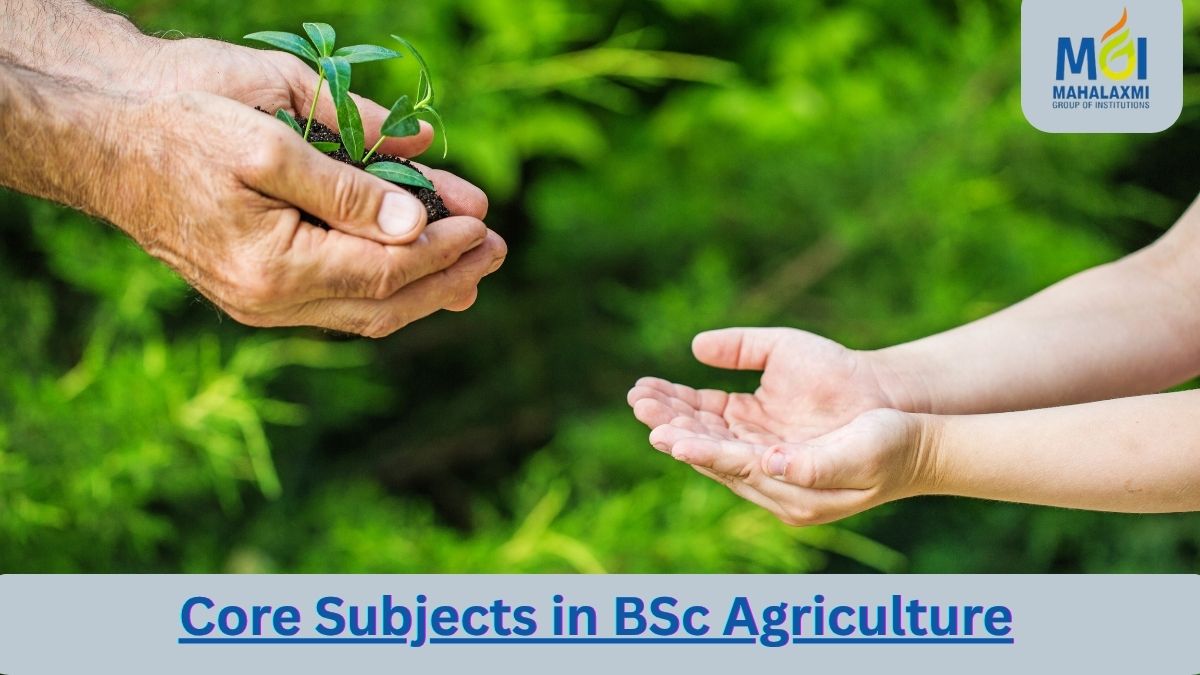B.Sc. (Home Science)
B.Sc Home Science is a 3 year full-time…

Planning to join the BSc Agriculture in 2025? One thing you must know is what the course covers. The BSc Agriculture syllabus is not just about crops and farming. It brings together science, environment, economics, and field training. In this blog, we’ll walk you through the BSc Agriculture syllabus 2025, semester by semester. The goal is to make it simple — no complex words, just easy understanding for school pass-outs.
Your first step into agriculture begins with core concepts. These help build your foundation.
Practicals – Soil testing, field visits, basic tools usage
Semester 2 – Deeper into the Land
Now the course moves toward plants and climate-related topics.
Practicals – Germination testing, nursery setup, weather readings
Semester 3 – Start Real Farming
This is where real agriculture kicks in. You learn both theory and field techniques.
Practicals – Pest collection, seed selection, weed identification
Semester 4 – Machinery and Fertility
This semester balances field knowledge with equipment and fertilizers.
Practicals – Equipment handling, compost making, disease diagnosis
Semester 5 – Business and Irrigation
The syllabus now focuses on planning and water management.
Practicals – Water budgeting, seed testing, tree planting
Semester 6 – Organic and Entrepreneurial
This segment gets you ready for sustainable farming and the business of the future.
Practicals – Organic composting, packaging exercises, price tracking
Semester 7 – Industry Exposure Begins
This semester includes your Rural Agricultural Work Experience (RAWE):
Practicals – Field surveys, interviews, soil & crop assessment
Semester 8 – Real-World Project
The last semester is fully practical. You choose a specific area for training:
This project helps you gain field-ready confidence before graduation.
The BSc Agriculture syllabus 2025 has a few updates:
Depending on the university, you might also get optional subjects like:
Once you complete your degree:
This course opens up multiple career paths in both rural and urban settings.
Q1: Is Whether syllabus is same for all the universities?
No. The basic subjects are mostly the same, but some electives and labs can be different.
Q2: Does the syllabus include computer training?
Yes. Some universities include the basics of computer and ICT in agriculture.
Q3: Can I choose organic farming as a specialization?
In many universities, yes. It’s either an elective or a full training module.
